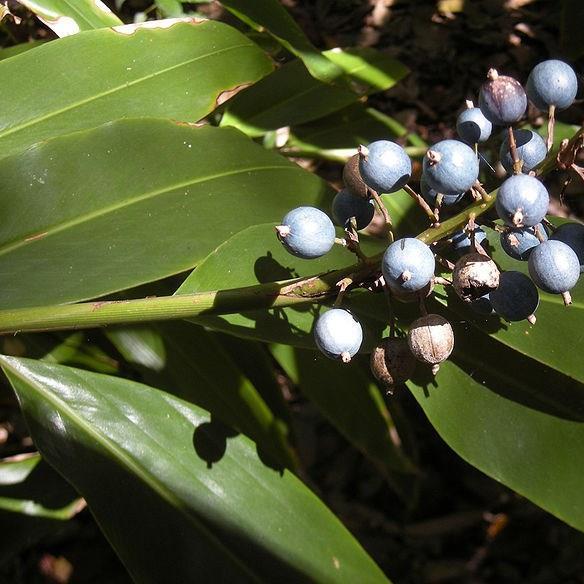
Alpinia Caerulea
Native Ginger
Ginger is an herbaceous perennial rhizome. The native ginger has broad sword shaped green leaves with attractive red undersides. The fragrant white flowers are followed by blue berries. The new leaf shoots and berries have a mild ginger flavour and can be used in cooking.. It forms a clump up to 2m height.
Contributed by @Sussanah
-
Partial shade to deep shade
-
Occasional watering
-
Not Frost hardy
-
Moist and free draining
Common name
Native Ginger
Latin name
Alpinia Caerulea
type
Rhizome
family
Zingiberaceae
ph
5.5 - 6.5 Acid - Neutral
Plant & bloom calendar
-
Best time to plant
-
When the plant will bloom
-
When to harvest
full grown dimensions
 0.40 M
2.00 M
0.40 M
2.00 M
Alpinia Caerulea
Ginger is an herbaceous perennial rhizome. The native ginger has broad sword shaped green leaves with attractive red undersides. The fragrant white flowers are followed by blue berries. The new leaf shoots and berries have a mild ginger flavour and can be used in cooking.. It forms a clump up to 2m height.
Planting
From Late Winter TO Early Spring
Ginger can be grown outdoors in frost-free areas, or can be grown in a container, indoors, in cooler climates. The preferred soil is rich, moist and free-draining, and ginger likes shade. Rhizomes can be bought in a supermarket, or from a plant nursery. Either way, the rhizome can be broken into pieces, each of which must have a growth bud - the shoots will come from these buds, and plant the pieces, either in soil, or in a pot of compost. Ginger needs light, and shelter from wind.
Propagating
From Late Winter TO Early Spring
Propagating ginger could hardly be easier! Simply break off a piece of the rhizome that has a growth bud, and plant it!
Flowering
From Late Spring TO Mid Summer
In most climates it is difficult to have a flowering ginger plant.The plant needs a full year of undisturbed growth, and several months of temperatures above 70 deg. F, before it will produce flowers, and for many areas, other than tropical areas, the conditions will not be right for the plant to produce flowers.











